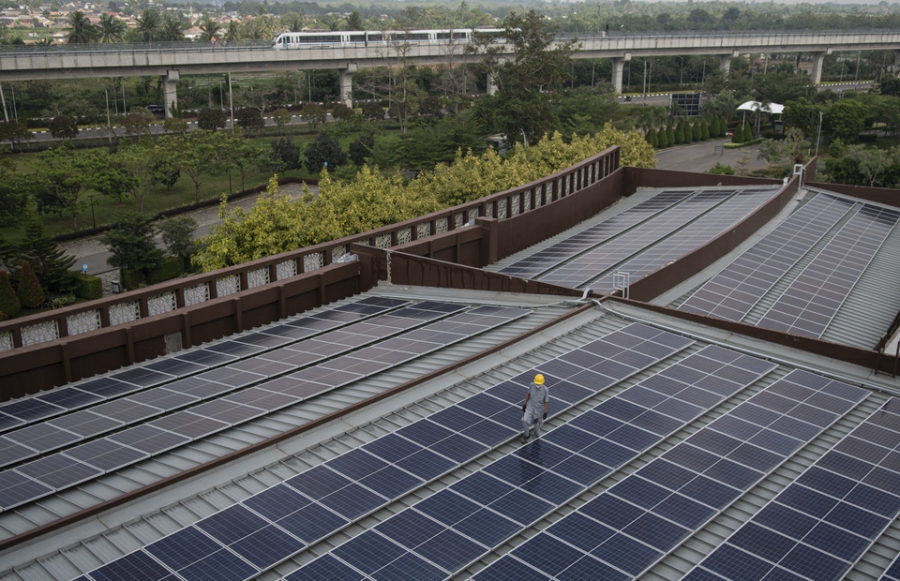The Importance of Healthy Market Competition to Develop Sustainable Energy Sector in Indonesia
Indonesia is actively transforming its energy sector to foster a more sustainable, efficient, and competitive landscape. This transformation is driven by the global shift toward environmental sustainability and the need to meet rising energy demands effectively. Central to these efforts is the strategic enhancement of competition across the country’s primary energy sectors. Such competition is expected to drive innovation, promote efficiency, and improve the overall service quality in the energy market.
The electricity market, historically monopolized by the state-owned enterprise, has seen significant reforms aimed at introducing competition and reducing inefficiencies. The Electricity Act, Law No. 30/2009, was a pivotal change, encouraging private and foreign investment particularly in renewable energy. This diversification is crucial as Indonesia aims to increase its renewable energy share to 23% by 2025 under its National Energy Policy. Additionally, the government promotes the decentralization of power generation to enhance competition. Initiatives such as feed-in tariffs and net metering, outlined in Ministerial Regulation No. 49/2018, incentivize the installation of distributed energy resources, like rooftop solar panels. These policies empower consumers to generate their own electricity, thereby reducing their reliance on certain major player and fostering a competitive environment where various energy providers vie for consumers based on efficiency, cost, and reliability.
Despite abundant reserves, the Indonesian natural gas sector has been tightly regulated, which has stifled market dynamics and led to high prices. Recent legislative initiatives, such as proposed amendments to the Oil and Gas Law, Law No. 22/2001, aim to reform the sector by facilitating easier access for new entrants and reducing the dominance of certain entities. The development of LNG infrastructure, including new storage and regasification facilities, is critical to managing the nation’s gas supplies effectively and meeting the varied needs of an archipelagic state. These efforts need to be complemented by the establishment of gas trading hub, which would enhance transparency, enable price discovery based on supply and demand, and encourage broader participation in the gas market. Such infrastructure not only supports the competitiveness of the gas market but also aligns with Indonesia’s goals for energy security and economic efficiency.
Another example is the aviation energy sector, which is critical for the connectivity of Indonesia’s vast archipelago. Its supply has been largely sourced from certain major players. To address this, the government needs to introduce improved regulatory framework which outlines procedures for more open Avtur supply and distribution. This regulatory shift would attract new domestic and international suppliers, thereby reducing prices through competitive pressures. In addition, there is a strong push to develop sustainable bioavtur, aligning with global goals to reduce aviation emissions. Incentives for bioavtur production not only help diversify the energy mix but also stimulate new industries within the renewable sector, potentially introducing more competitors into the Avtur market.
Supporting these sector-specific reforms are overarching strategies designed to enhance market health and competitiveness. Strengthening regulatory frameworks ensures fair competition. The establishment of independent regulatory bodies to oversee and monitor market practices helps prevent anti-competitive behaviors and ensures compliance with regulations. Transparency in energy pricing and licensing builds investor and consumer trust, encouraging greater market participation. Moreover, educating consumers about their energy choices stimulates demand-side competition, compelling companies to improve their offerings and service quality.
While progress has been made in several areas, other sectors still face significant challenges. The coal sector, for example, is heavily influenced by the Domestic Market Obligation (DMO) policy, which requires coal producers to sell a portion of their output domestically at capped prices. This policy, intended to ensure affordable coal for domestic use, often distorts the market and discourages investment in cleaner technologies. In the oil sector, the dominance of certain major players and high entry barriers limit competition and innovation. The Oil and Gas Law No. 22/2001 aimed to reduce state control but has not fully achieved its goal due to stringent regulations favoring the major players. To foster healthier competition, Indonesia could benefit from further regulatory reforms that reduce state control, enhance transparency, and provide equal opportunities for new entrants in these sectors. This could lead to more competitive pricing, better service quality, and increased innovation, aligning with global environmental goals and improving the economy.
Indonesia’s approach to enhancing competition in the energy sector could greatly benefit from adopting more consistent, clear, and supportive policies across all energy types. This strategy should include liberalizing entry and operation regulations to create a more level playing field and promote new investments, particularly in renewable and less represented energy markets. Engaging with international partners and leveraging global financial mechanisms can provide essential funding and expertise. Collaborations with global financial institutions, environmental organizations, and international energy agencies can accelerate the deployment of clean energy technologies and scale up projects that significantly impact national and global sustainability goals.
Through these initiatives, Indonesia is not only enhancing its energy market but also contributing to global efforts to combat climate change. By fostering a competitive environment, Indonesia is encouraging innovation and efficiency, which are critical for reducing greenhouse gas emissions and promoting sustainable development.

Moreover, the involvement of local communities in energy projects, particularly in rural and remote areas, is vital for the success of these initiatives. Community-based energy projects can provide localized solutions that are more sustainable and tailored to specific regional needs, enhancing energy access and reliability. These projects also offer opportunities for local economic development by creating jobs and supporting local businesses.
Indonesia’s comprehensive approach to fostering healthy competition in its energy markets is pivotal to its strategy for a sustainable and resilient energy future. By implementing targeted reforms and embracing market-based solutions across the energy sectors, Indonesia is enhancing its energy security, supporting economic development, and contributing to global environmental sustainability efforts.
Through diligent policy execution, strategic international cooperation, and robust public engagement, Indonesia is not only transforming its energy landscape but is also setting a precedent for sustainable development that harmonizes economic growth with environmental integrity. The strategic focus on healthy competition and market efficiency would help Indonesia to balance economic growth with environmental stewardship.
***
*) Taufikurrahman is Prominent Faculty Member at International Business Management Program (IBM), Binus University.








Comments :